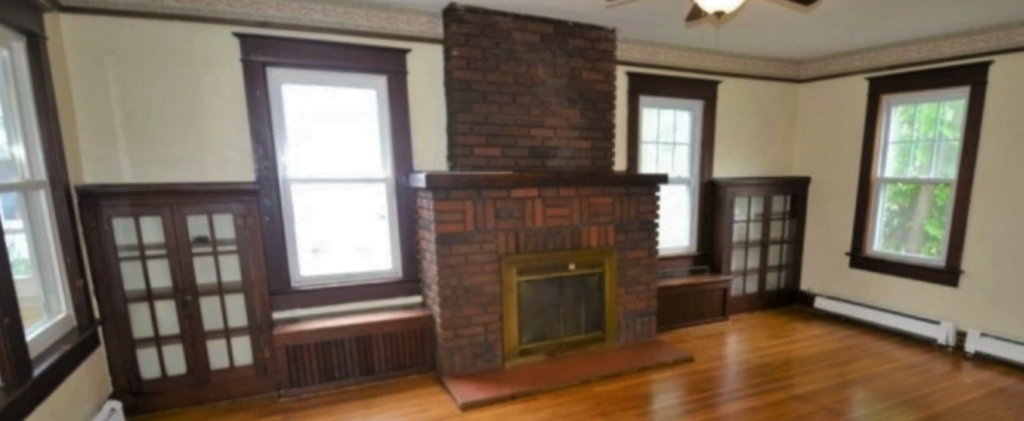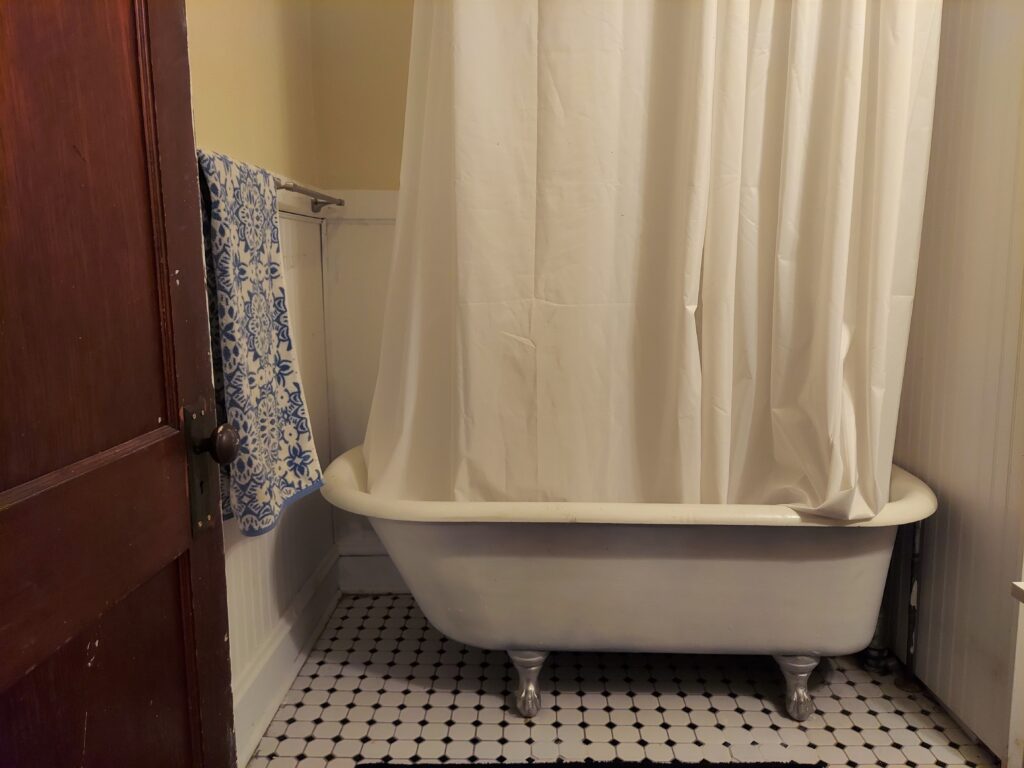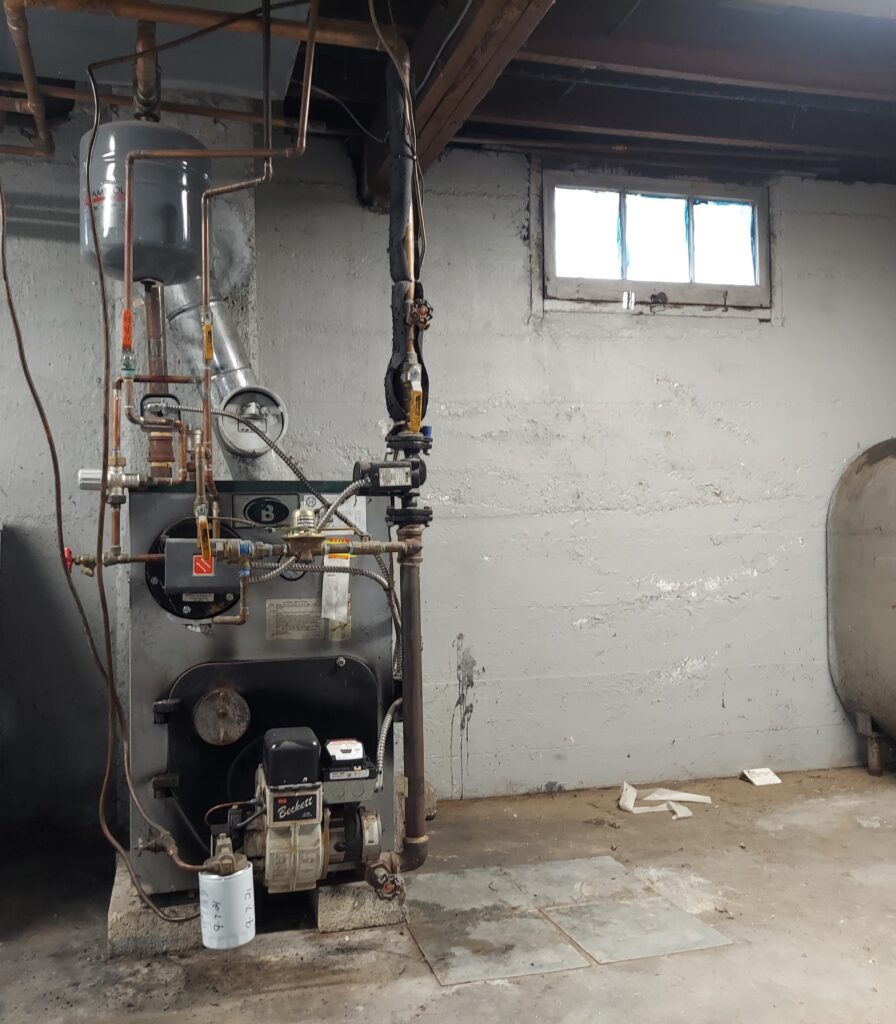Start with the Plumbing
By Vonda Givens, Executive Director

An excellent plumber is infinitely more admirable than an incompetent philosopher. The society that scorns excellence in plumbing because plumbing is a humble activity and tolerates shoddiness in philosophy because it is an exalted activity will have neither good plumbing nor good philosophy. Neither its pipes nor its theories will hold water. –John Gardner
I first read this John Gardner quote last summer. It struck a chord, though I couldn’t tell you why. Somehow it felt vaguely Craftsman. I could imagine a Craftsman magazine article extolling the virtues of superior plumbing, though I wasn’t aware of any. I saved the quote to my phone and forgot about it.
When I recently came across the quote again, I laughed. Last summer I did not know that my husband Wes and I would leap into the turbulent real estate market in October, sell our house, and in December buy—to my continuing surprise—a 1920s Craftsman in need of help. Upon moving in, I was immediately reminded of the importance of good plumbers—and also electricians, carpenters, and whatever you call the hero who repairs your boiler. In my case, his name was Randall.

On day one in our new home, I stood beside the clawfoot tub and realized that no matter how long I ran the shower, the water was not going to heat up. Grumbling, I raced through a cold shower, stumbled over boxes to find a (mostly) coordinated outfit for work and texted Wes (who would be away until the late evening) to see what he might know about the hot water. Then after a trip to the basement, I made a desperate call to the company whose name I found on an old receipt taped to the boiler. We were in one of the first cold snaps of December. They were busy. Could I be home for a 6 p.m. appointment? I jumped at this offer. Why, yes, I could! Later that day, I arrived at my new (old) home just ahead of repairman Randall. I led him to the basement and then, back upstairs, I paced, waiting for a verdict.
“It’s old,” he said when he emerged from the basement, but he declared with admiration in his voice, we had a “monster” of a boiler. Inexplicably flattered, I was even more pleased when he said he could get the hot water working. He needed to replace a part. He had to track down the part, but he’d be back.
As I watched his van pull away, gloom swept over me. It was getting late. Would Randall really return? Hours passed. Surely it was too late for him to be working, but then there he was. I have never felt so pleased to see a relative stranger’s face appearing in the darkness under my porch light. Randall had come back! He had been, he said, on some sort of part-finding odyssey, but he had persevered. Down to the basement he went.

Minutes later I heard what I thought was a voice calling to me. I started down the basement stairs and then realized Randall was speaking, but not to me. He was addressing the boiler as he worked—expressing his frustration, directing it to stand down. I crept back up the stairs and waited. Randall emerged. He needed a more serious tool from his truck.
Back inside and newly armed, he returned to the basement. I heard knocking and clanging and Randall giving more directives. Then a calm seemed to descend and eventually he made a triumphant return up the stairs. The diverter valve had been replaced. The hot water was working again. Soon after Randall departed, my husband Wes returned home from work, and I declared Randall to be a hero.
Since that day, I have been grateful for the team of electricians, plumbers, carpenters, Internet technicians and more, who have helped us begin to live comfortably in our new (old) home. In the first week, the plumber and electrician hooked up a washer and dryer in a basement that had not seen them in years. Then came the new refrigerator, selected from whatever the supply chain made available. Two weeks later, the stove died mid-bake, taking down a pizza with it. Out we went to buy a new oven—it sings a happy tune when it is preheated—and we sprang for the matching dishwasher too. Given our recent luck, the dishwasher was sure to expire any day. Next up was a new toilet, but the old one overflowed twice before we could get it installed. As winter turned into spring and then summer, we took on replacing many of the once beautiful, but now comically decrepit, old windows, and surely to our neighbors’ delight, installed permanent shades.
I recently asked Jonathan Clancy if The Craftsman had articles about plumbing. It seemed to me that the magazine would pre-date advancements in plumbing, and I hadn’t gotten around to searching it for myself. With lightning speed, he landed on this memorable quote from January 1906, and gleefully read it aloud to me from across the office:
Many practical conditions enter into the making of a model home, none of which is of more vital importance than safe and sanitary plumbing. With this condition neglected, the household risks and invites the ever present danger of turning the home into…a house of mourning.
The Craftsman, January 1906.
As always, The Craftsman delivers. Attend to your plumbing or live in a house of mourning. This is wise counsel.
Since I wrote about purchasing our new (old) home last December, so many people have kindly asked if we’ve settled in and how it’s going. “Well,” I often begin with a deep sigh, “I didn’t want a fixer-upper….” With nine buildings to preserve at Craftsman Farms, it often feels like I work in a perpetual construction project. I’m either trying to find money to start a project, in a construction meeting for a project underway, waiting for a punch list to be completed, or all three at the same time. I had not wanted to bring this work home, so to speak.
In the end, though, I did bring my work home, but in a good way. I brought a Craftsman sensibility into my new (old) house—a sensibility akin to that Craftsman quote about plumbing—around getting the details right and attending to the “practical conditions” that make a house a home, instead of a house of mourning. It is not, perhaps, the most pleasurable part of purchasing a new home, but, as I keep telling myself, you can trust The Craftsman. You won’t regret focusing on these fundamental details.
I think of Stickley’s Craftsman ideals less as a comprehensive philosophy and more as a loose set of precepts—like this motto on a Log House fireplace: “By Hammer and Hand Do All Things Stand”—but I’ve always appreciated that the Craftsman aesthetic is underpinned by a philosophical way of thinking and approaching the world. This approach has helped me find pleasure in setting up a home from the basement up. There will be time later to choose paint colors and arrange furniture. After the year I’ve had, like Gardner, I have come to think that sound philosophy and sound plumbing are somehow correlated. I think Stickley would agree. My own Craftsman motto might be: “Start with the Plumbing.”